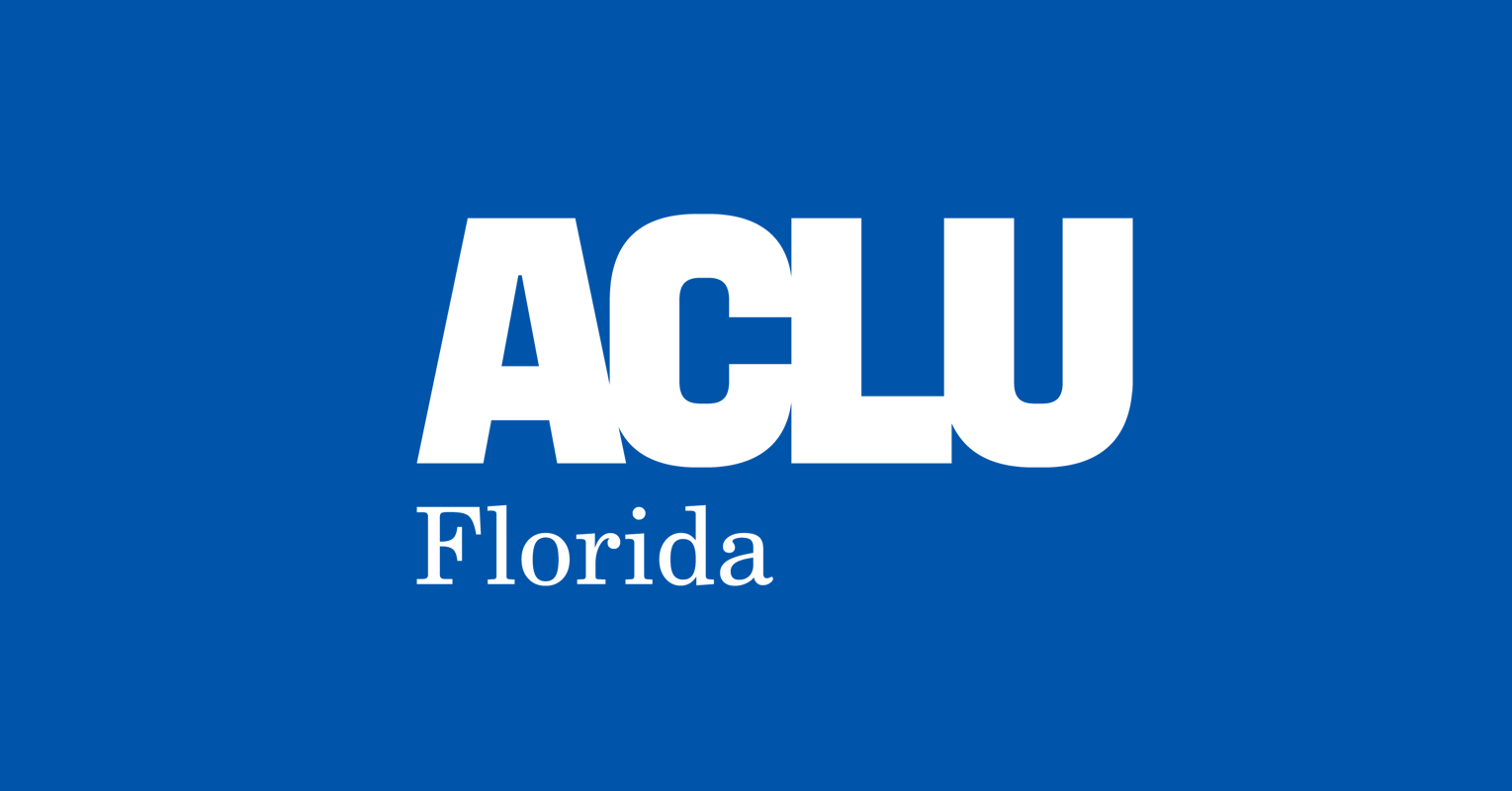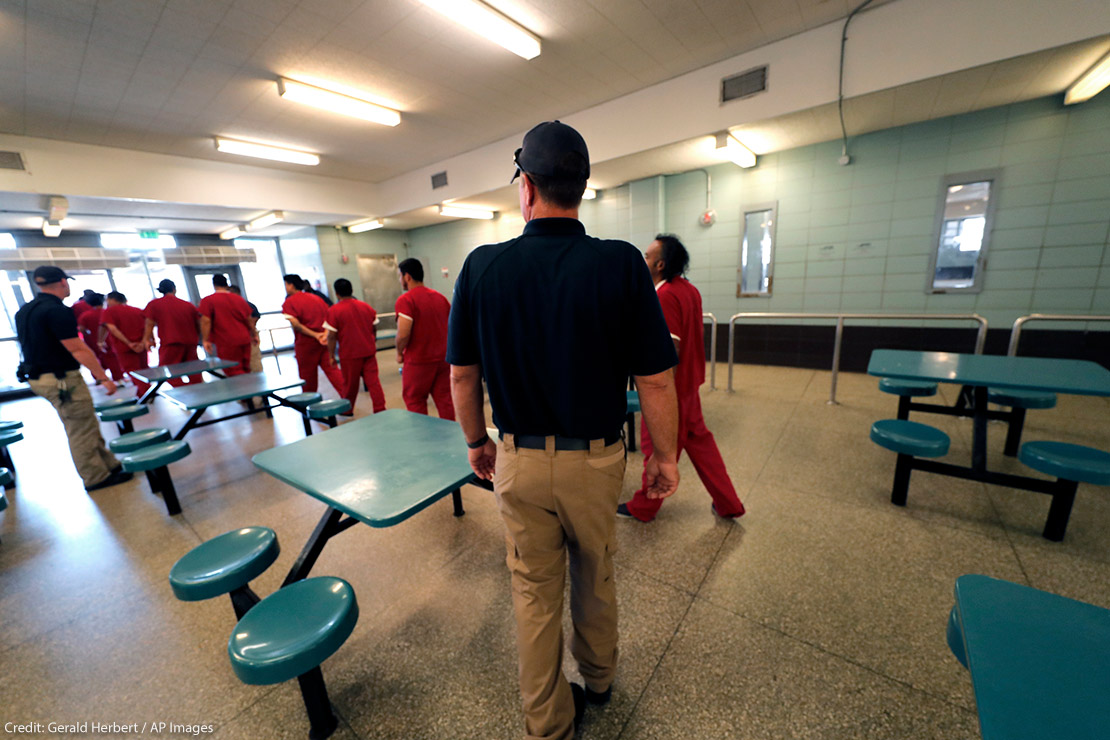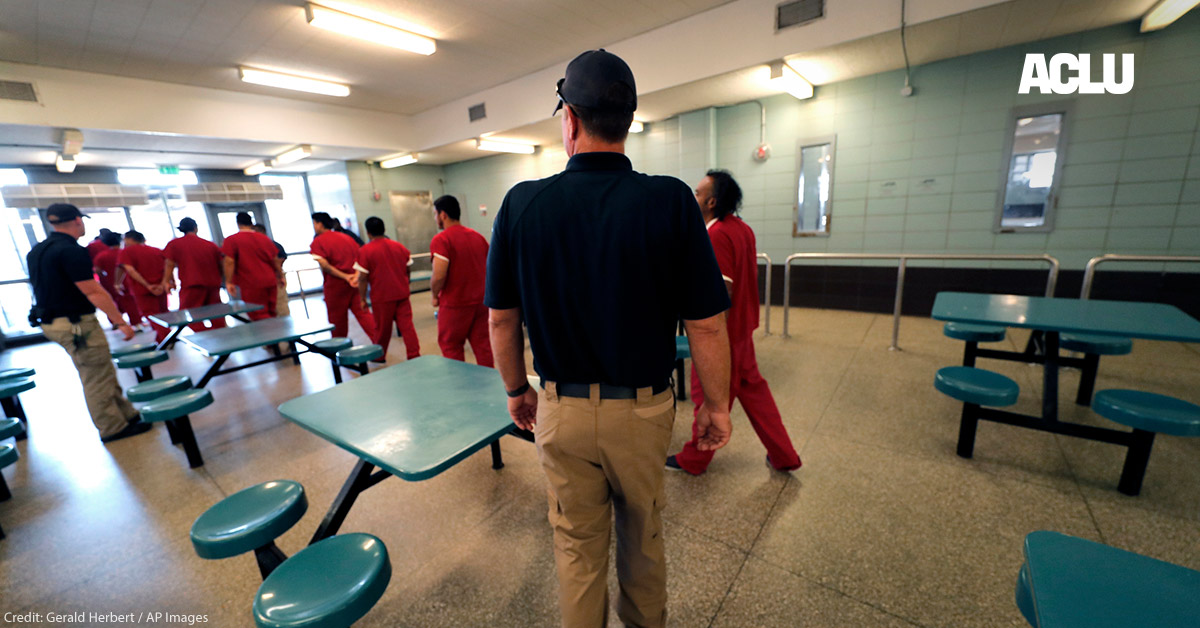This op-ed was first published in the South Florida Sun-Sentinel.
Immigration and Customs Enforcement (ICE) has a long track record of evading accountability by any means necessary. In the last few years alone, ICE has deported women before they could testify about horrific medical abuse they endured in detention, deleted surveillance footage of the final moments of a transgender woman who died in agency custody, and even obtained permission from the National Archives to destroy years’ worth of sexual assault and death investigation records from ICE facilities across the country — a plan later blocked by a federal judge.
Most recently, our organizations and others uncovered that Glades County Detention Center — a county jail in Moore Haven, Florida, that detains immigrants under a contract with ICE — has been deleting facility surveillance video every 90 days, in violation of federal law and contract requirements. Despite knowing about this for months, ICE officials failed to take legally required action against the facility, prompting the ACLU of Florida and CREW to file a complaint. Glades personnel later confirmed to the press that the jail does not follow federal recordkeeping laws, even though it is a federal contractor.
Records preservation has real consequences for accountability. Documentation of the inhumane and violent conditions at ICE detention centers — the vast majority of which are run by for-profit prison companies — can be critical evidence in government investigations and civil rights litigation on behalf of detained immigrants. Loss of this evidence can make it harder to pursue justice for victims and hold wrongdoers accountable. It also prevents the public from learning about the full extent of abuses perpetrated in immigration detention centers.
This is a very real concern at Glades. Operated by the Glades County Sheriff’s Office (GCSO), Glades is infamous for its patterns of human rights abuses and deplorable conditions. In 2020 and 2021 alone, 62 complaints lodged by individuals detained at Glades were escalated to the Department of Homeland Security’s Office of Civil Rights and Civil Liberties seeking intervention by the federal government. Of these complaints, 84% described patterns of medical neglect, including the GCSO’s failure to provide prescription medication with devastating consequences and refusal to provide necessary medical treatment for known conditions and critical health issues. These systemic failures have had and continue to have lasting repercussions.
Complaints from detained individuals also document a pattern of physical abuse, including excessive use of force, the unwarranted and punitive use of solitary confinement, and anti-Black discrimination and harassment. There have been 39 complaints submitted to the ACLU of Florida reporting abuse and misconduct by GCSO officers and medical staff in recent months. These reports are remarkable in both their severity and similarity. Many detained individuals report the same kind of abuse: physical assaults targeted at African and other Black immigrants; punitive and retaliatory use of pepper spray followed by placement in solitary confinement without allowing the detained individual to wash off the spray or change out of contaminated clothes for hours and even days; and racial slurs and targeting of Black and brown immigrants, including threatening to leave a noose in one immigrant’s cell.
These complaints make Glades’ refusal to maintain video surveillance footage as required by law even more egregious. The only way Glades County can be held accountable for these abuses is through the evidence generated at the facility. We believe that video surveillance footage will support the allegations and complaints levied against Glades County and reveal multiple instances of misconduct and abuse. By deleting this footage, Glades undermines the constitutional rights of the individuals in its charge and inhibits potential civil rights litigation that will seek to address the systemic abuses at the facility.
In recent months, the number of individuals detained at Glades has dropped to record lows as ICE transfers immigrants to other facilities like Krome North Processing Center in Miami. However, transferring immigrants to Krome does not resolve concerns about detention conditions. Krome is also the subject of numerous complaints concerning inhumane conditions. While these transfers may be an attempt by ICE to direct attention away from the atrocities at Glades, there is no assurance for the safety and well-being of those at Glades. These transfers also do not relieve ICE’s responsibility for those in its custody and Glades County’s potential liability for violating federal law.
For its part, ICE has done little to ensure its detention contractors comply with federal standards. A recent Inspector General report found, for instance, that ICE has failed to implement record retention requirements at the more than 200 detention facilities it oversees nationwide. These failures have impeded government investigations and will continue to do so if left unaddressed, the Inspector General concluded.
These findings reinforce what advocates have been saying for years: The problems at ICE are deep-rooted and systemic. Addressing them requires meaningful action and structural change, not more empty promises of reform. Terminating ICE’s contracts with facilities like Glades that fail to meet basic standards, as 17 members of Congress recently urged, would be a step in the right direction and in keeping with President Biden’s campaign promises. It’s time for the administration to follow through on those commitments.


